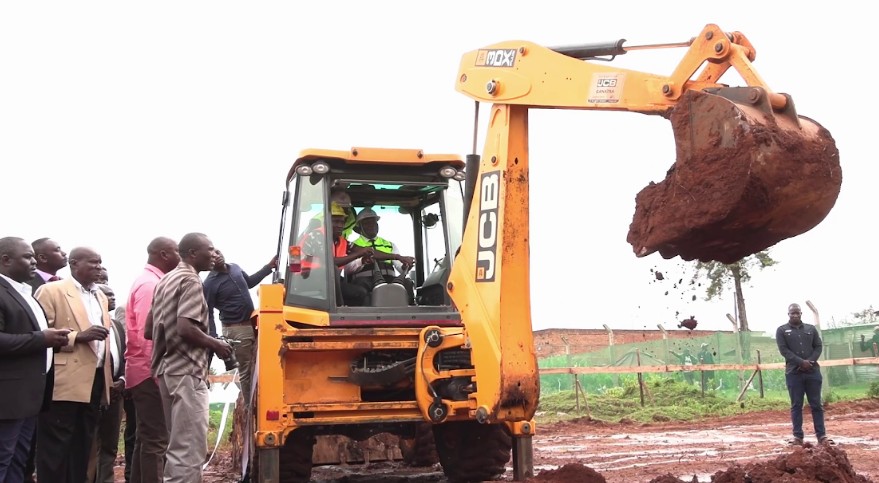

Kakamega County has begun the construction of a 60-bed Maternity wing at Likuyani Level IV Hospital.
The devolved unit will spend Sh90 million to construct the facility that is expected to be completed by January 2026.
The Maternity wing will have a theatre, Labour ward, Antenatal and post-natal unit, a newborn unit (NBU), and a Kangaroo Room.
Governor Fernandes Barasa said the county government is constructing the Maternity wing under the Tutunze Kakamega Programme.
In the programme, the county government is partnering with Jakaranda health, Thinkwell, ThinkPlace, Rescue, Harvard University, and other sponsors in the health sector under the Service Delivery Redesign (SDR).
Governor Barasa urged expectant women to also register for Barasa care where they receive a stipend of Sh 12 000 once they attend both phases of childbirth: going to the clinic for a checkup during pregnancy, giving birth in a hospital and taking the child to all immunisations.
“I want to appreciate our partners for making sure that we do groundbreaking for a very sophisticated facility, one of its kind in Kakamega and also for Kakamega becoming the first county in the republic of Kenya to have such facilities,” he added.
The Country Director of Jakaranda Health, Dr Job Makoyo, said the Tutunze Kakamega programme emerged in the first position in the world in terms of service delivery redesign.
“This project was the first in the world and it was only implemented in Kakamega county, its aim is to ensure all expectant women deliver in hospitals that will offer them comprehensive services during child delivery,” he explained.
He said the Likuyani project is the fourth one being established in Kakamega after the ones launched in Malava, Lumakanda, and Matungu.
“Right now there is Matungu Maternity, which is going on and at the same time there is a new NBU being constructed in Malava, so those are some of the projects that we have collaborated very well with the county government on because we want to improve how mothers and babies access care,” he noted.
Makoyo disclosed that Rescue, a partner in the project, helped over 9000 expectant mothers and their babies reach hospitals for services in the two years they were in operation.
“We are also working with Thinkwell on health financing matters where they supported the development of the Kakamega Health Service Fund,” he added.
“Another important thing we did at the community level was to increase access to blood. Kenya generally faces challenges with women accessing blood, but in Kakamega county, we collaborated very well with the county government and organised several blood drives where we increased access to blood,” he added.
He said Jakaranda health is also enabling women to access information on their health by providing a Short Message Service (SMS) platform where pregnant mothers enrol in a prompt, and then they get messages to encourage them to visit hospitals.
“When they go to hospital, we want them to find healthcare workers, nurses, clinical officers and doctors who have the skills to provide those quality services,” Makoyo noted.
“Through all these things that we have done, we have actually also helped in decongesting the general hospital, because we are able to provide these services within the communities; that means that the general hospital can concentrate on major health cases; even in Malava we saw a decrease in referrals,” he explained.












